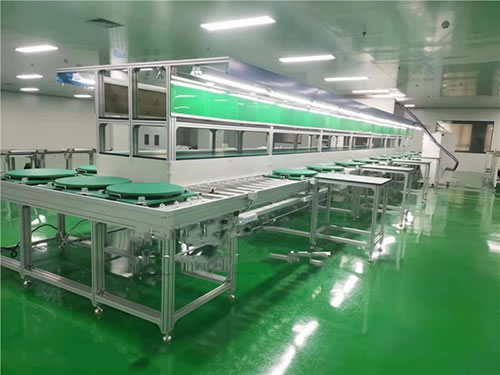The cascade utilization of Vietnamese lithium battery modules makes a significant contribution to environmental conservation
**Vietnam's Fiscal Policy: Stability and Sustainable Development**
Vietnam's fiscal policy plays a crucial role in the nation's economic stability and sustainable development. The government focuses on maintaining a balanced budget to control inflation and promote healthy economic growth. By implementing prudent fiscal measures, Vietnam ensures that public finances are managed efficiently, avoiding excessive borrowing and promoting long-term sustainability.
Key aspects of Vietnam's fiscal policy include:
1. **Revenue Enhancement**: The government aims to broaden the tax base and improve tax collection efficiency to increase revenue without burdening the economy.
2. **Expenditure Management**: Careful allocation of resources to priority sectors such as infrastructure, education, and healthcare ensures that public spending contributes to sustainable development.
3. **Debt Management**: Maintaining a manageable level of public debt is essential. Vietnam adopts a conservative approach to borrowing, ensuring that debt levels remain sustainable in the long run.
4. **Fiscal Consolidation**: Efforts are made to reduce fiscal deficits over time, which helps in maintaining economic stability and preparing for future challenges.
5. **Social Protection**: Ensuring that social welfare programs are adequately funded supports inclusive growth and reduces inequality.
In conclusion, Vietnam's fiscal policy is designed to balance the need for economic growth with the imperative of maintaining financial stability. Through careful management of revenues and expenditures, the country aims to achieve sustainable development and improve the well-being of its citizens.

Regarding the policies on the recycling of cylindrical hard-shell batteries, although specific regulations may vary by region and country, some general principles and guidelines can be outlined. As of the latest information available up to 2023, many countries are increasingly focusing on environmental sustainability and the proper disposal of batteries, including cylindrical hard-shell types.
1. **Recycling Rate Requirements**:
- By December 31, 2025, the recycling rate for lead-acid batteries should reach 75%, lithium-based batteries (including cylindrical hard-shell lithium-ion batteries) should achieve a recycling rate of 65%, nickel-cadmium batteries 80%, and other waste batteries 50%.
2. **Producer Responsibility**:
- Many regions have implemented producer responsibility systems where battery manufacturers are held accountable for the collection, recycling, and proper disposal of their products. This encourages manufacturers to design batteries that are easier to recycle and to establish recycling programs.
3. **Collection and Recycling Facilities**:
- Governments often mandate the establishment of collection points and recycling facilities specifically for batteries, including cylindrical hard-shell batteries. These facilities ensure safe handling, storage, and processing of used batteries to minimize environmental impact.
4. **Labeling and Information**:
- Batteries, including cylindrical hard-shell types, are required to be labeled with information about proper disposal and recycling instructions. This helps consumers understand how to dispose of them responsibly.
5. **Banning and Restrictions**:
- Some regions have banned or restricted the use of certain hazardous substances in battery production, which indirectly supports recycling efforts by reducing the toxicity of discarded batteries.
6. **Incentives and Support**:
- To encourage compliance and participation in battery recycling programs, governments may offer incentives such as tax credits, subsidies, or grants to both consumers and businesses that engage in proper battery recycling practices.
It's important to note that these policies are subject to change and may vary depending on the jurisdiction. For the most accurate and up-to-date information, it's advisable to consult local regulations or official government websites.

In summary, Maoxin Machinery's series connection of lithium battery modules, with its high-quality products and services, has provided strong support for cylindrical hard shell battery reuse related enterprises in Vietnam and more countries and regions. In the future development, Maoxin Machinery will continue to uphold the principle of "valuing contracts and keeping faith", providing more practical and reliable products and services to customers in Vietnam's cylindrical hard shell battery reuse industry. We wish our customers in Vietnam's cylindrical hard shell battery reuse industry: thank you for the joint efforts of our partners, which have enabled us to achieve a win-win situation.